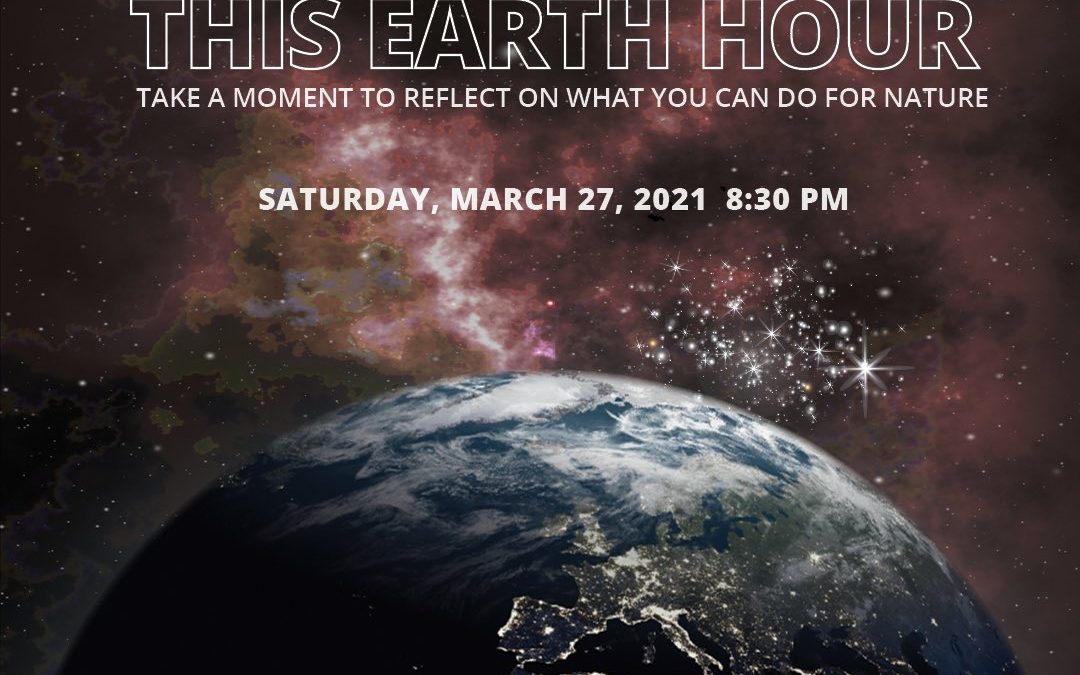PR / Singapore, (February, 2021) – On Saturday, 27 March at 8:30 p.m. local time, Earth Hour, one of the largest global grassroots movements for the environment, will virtually bring together millions of people, businesses and leaders from around the world to shine a spotlight on the urgent need to address nature loss and climate change. With evidence pointing towards a close link between nature’s destruction and rising incidences of infectious disease outbreaks like COVID-19, Earth Hour 2021 will unite people online to speak up for nature. This global event comes ahead of key moments when world leaders will take critical decisions on nature, climate change and sustainable development, setting the course of our future.
The occurrence of several catastrophic incidents last year including extreme weather events, devastating wildfires and the COVID-19 outbreak highlighted that preventing nature loss is crucial for safeguarding our future. A global assessment of biodiversity targets showed that the world failed to meet the 2020 deadline for achieving the targets set for preventing nature loss a decade ago. Earth Hour marks a pivotal opportunity for civil society organisations, individuals, businesses and environmentalists to call on world leaders for setting nature on a path to recovery by 2030.
“Healthy natural ecosystems are the cornerstone of thriving, equitable and sustainable societies. Our current socio-economic models are leading to the devastating destruction of nature which is increasing our vulnerability to pandemics, accelerating climate change, and placing livelihoods at risk.” said Marco Lambertini, Director General, WWF International. ”2021 is a crucial year for humanity. As the world tries to turn the tide and recover from the ravages of the COVID-19 pandemic and rebuild itself, we need to put nature at the centre of our recovery efforts to future proof our economies and societies. Earth Hour is a critical moment for individuals, leaders, and environmentalists to unite and call for urgent action to reverse nature loss and secure a nature-positive world by 2030.”
In the past decade, Earth Hour has inspired the global initiatives for protection of nature, climate and the environment, helping drive awareness, action and policy change. The movement helped in the creation of a 3.5 million hectare protected marine area in Argentina, a 2,700-hectare Earth Hour forest in Uganda, secured new legislation for the protection of seas and forests in Russia, pushed for a ban on single-use plastics and Styrofoam products in the Ecuadorian capital, and initiated the planting of 20,000 mangrove seedlings in 13 cities in Indonesia.
Visit www.earthhour.org to find out more about events happening this Earth Hour around the world.
About Earth Hour
Earth Hour is WWF’s flagship global environmental movement. Born in Sydney in 2007, Earth Hour has grown to become one of the world’s largest grassroots movements for the environment, inspiring individuals, communities, businesses and organizations in more than 180 countries and territories to take tangible environmental action for over a decade. Historically, Earth Hour has focused on the climate crisis, but more recently, Earth Hour has strived to also bring the pressing issue of nature loss to the fore. The aim is to create an unstoppable movement for nature, as it did when the world came together to tackle climate change. The movement recognizes the role of individuals in creating solutions to the planet’s most pressing environmental challenges and harnesses the collective power of its millions of supporters to drive change.
Earth Hour is kindly supported by Germany’s Federal Ministry of the Environment, Nature Conservation and Nuclear Safety with funding from the International Climate Initiative (IKI), as a part of the project “Scaling up Biodiversity Communication”.
About WWF
WWF is an independent conservation organization, with over 30 million followers and a global network active in nearly 100 countries. Our mission is to stop the degradation of the planet’s natural environment and to build a future in which people live in harmony with nature, by conserving the world’s biological diversity, ensuring that the use of renewable natural resources is sustainable, and promoting the reduction of pollution and wasteful consumption. Visit this page for the latest news and media resources; follow us on Twitter @WWF_media

